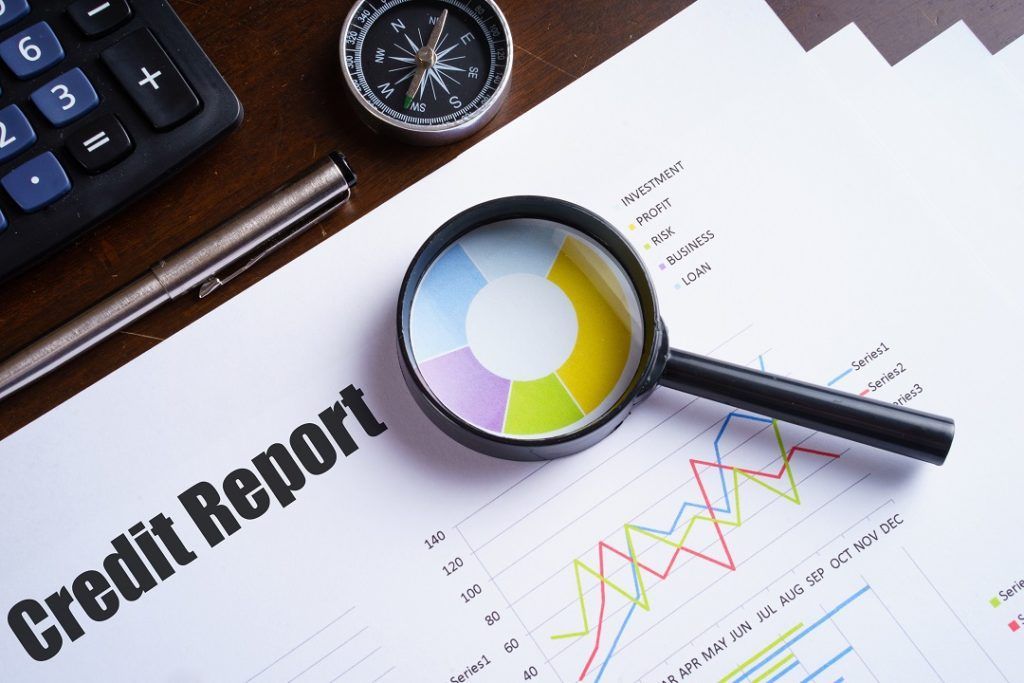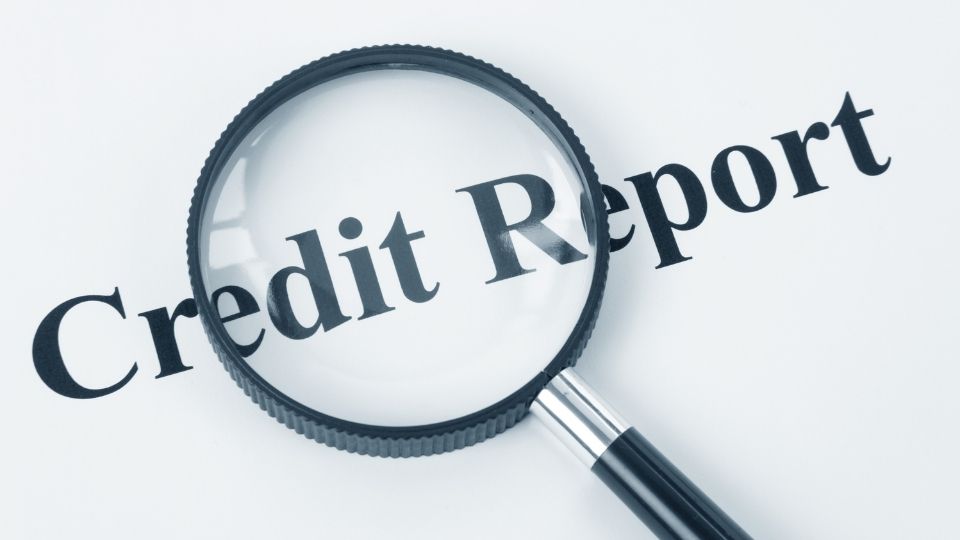Credit Reports: An Overview and Guide
Nov 07, 2023 By Triston Martin
You should be familiar with the contents of your consumer credit report since a high score can have far-reaching effects on your financial situation. Your credit score is one factor that lenders look at when deciding whether or not to extend credit to you in the form of a loan, credit card, or credit line. One of the factors used to determine if you are granted new credit and at what interest rate is your credit score.
Who Determines Credit Scores and Why?

Credit ratings don't materialise for no reason. They are determined by looking at your credit record. The Fair Isaac Corporation's FICO score is widely used. The scale for this score goes from 300 to 850, with 850 being perfection. Another option for credit rating is VantageScore.
FICO and VantageScore model uses a distinct set of algorithms to calculate a credit score, although they also use data from credit reporting bureaus. The first step toward better credit health is learning how to read your credit report.
A Guide to Understanding Your Credit Report

A credit report might appear like random statistics, but it's relatively straightforward if you know what you're looking for. There are typically five distinct parts to a credit report.
Details About Yourself
Your credit history is connected to your Social Security number. In addition to your name, DOB, and current address, this information will also be included in your credit report. This background check includes your current and previous residences, places of employment, and any other names you've used in the past.
Credit Accounts
Depending on how long you've been using credit, this will make up the bulk of your credit report. All of your open and closed credit accounts will be included here, along with facts about each one, such as the sort of account it is, the name of the creditor, the current amount, the total credit limit, your payment history, and the date it was opened and closed.
Collection Items
The creditor may send the account to a collection agency if you fail to pay your debt. Once a bill goes to collections, it might appear on your credit report. Negatively impacting a score, collection items are a real possibility.
Accessible Documents
Judgment will be entered against you if a debt collector wins a lawsuit filed by them to collect on a debt that is not paid. A review, as well as any subsequent collection efforts, such as a wage garnishment or a lien against your property, might show up on your credit report. This portion of public records would also include information about foreclosures and bankruptcies.
Inquiries
Lenders may look at your credit report and score when you apply for new credit. Inquiry of this nature is considered rigorous. Each further examination for credit will land on your credit record. Excluded are requests that do not entail a review of your credit record, such as when you check your report or score.
Concerning Your Credit Rating and Report
For several reasons, you must understand how to decipher the data included in your credit report. First, it might help you learn more about the factors that boost or lower your score. FICO scores are calculated using the following five criteria:
- Prior Receipts
- Amounts Owed or Used on Credit
- Length of Credit History
- Credit Mix
- New Credit2
In determining your final grade, many factors are taken into account. Of the five, payment history is the most crucial. In the same way that making all of your payments on time might boost your score, failing to do so can have a devastating effect.
What Exactly Is a Consumer Credit Report, Anyway?
A consumer credit report is a document detailing an individual's current credit standing and credit history. Credit reports describe an individual's open, closed, and overdue accounts, credit limits, account balances, payment histories, names, addresses, and phone numbers, as well as public data like liens, collections, and bankruptcies.
What Isn't On A Credit Report?
Your credit report does not include details about your spending habits, marital status, medical history, bank or investment account balances, educational background, disciplinary record, or credit score.
How Detailed Is a Complete Credit Report?
Credit reports contain various information about a person's financial history and are presented in a statement style. At the top comes the individual's biographical data, followed by a breakdown of their credit history into categories, including credit cards, loans, mortgages, and public records.
Summary
Although credit reports have a reputation for being confusing, they help raise your score. However, remember those bad things, such as overdue payments and collections, can remain on your credit report for up to seven years, and bankruptcies can remain for up to ten years. Regularly reviewing your credit report will help you establish a solid foundation upon which to develop a positive credit score, which will serve you well when applying for new credit.
On this page
Who Determines Credit Scores and Why? A Guide to Understanding Your Credit Report Details About Yourself Credit Accounts Collection Items Accessible Documents Inquiries Concerning Your Credit Rating and Report What Exactly Is a Consumer Credit Report, Anyway? What Isn't On A Credit Report? How Detailed Is a Complete Credit Report? Summary
Feb 07, 2024
Taxes
How To File Back Tax Returns With The IRS
Don't let back taxes get you down. Get the answers to your questions about filing back tax returns with the IRS and how to stay on top of the process.

Dec 23, 2023
Investment
What are The best ways to Buy Municipal Bonds Directly
Direct internet trading, often known as self-managed accounts, is a way for investors to buy and sell municipal bonds without the mediation of a private client broker.

Dec 26, 2023
Investment
Investing In Space Exploration
Space exploration has been one of the areas that many argue is the sole responsibility of governments. Space exploration does not only have a high cost and uncertain economic benefits, which are a scourge for companies; however, many experts and observers are concerned that their participation could affect the integrity of pure science or cause uncontrolled land grabs that are hard to judge in courtrooms on the ground.

Nov 06, 2023
Banking
Platinum Card from American Express
The original premium card offers 5X points for certain hotel and flight bookings, hundreds of dollars per year in travel credit and shopping, and an array of benefits for luxurious lifestyles.

Jan 16, 2024
Banking
Credit Card Tips For Beginners
This article will give an expert view of the best tips to help you use your credit card correctly.

Oct 13, 2023
Banking
Definition of Online Bill Pay
Online bill pay is a payment or banking service that allows you to pay your bills online through a bank account, often without cost. It will simplify your finances by removing the requirement to write checks or divide and count the paper currency.

Mar 24, 2024
Taxes
Can You File Taxes Without a Social Security Number? Understanding Your Options
Learn about filing U.S. taxes without an SSN, the ITIN application, and tax filing options for non-residents and individuals without a social security number.

Jan 09, 2024
Banking
Demand in Relation to Advertising Elasticity
An indicator of how responsive a market is to changes in advertising exposure is the advertising elasticity of demand. The advertising campaign's ability to generate more sales is quantified by its elasticity. It is arrived at by dividing the proportional increase in demand by the proportional increase in marketing costs. When the advertisement elasticity is positive, more of the promoted product or service is bought as a result of the added exposure.

Feb 08, 2024
Investment
High-Yield Muni Bond ETFs
Exchange-traded funds (ETFs) that invest in high-yield municipal bonds make their investments in the debt, or other local government bodies

Dec 01, 2023
Banking
Walgreens Credit Card
You will accumulate incentives through Walgreens Cash, which you can use to pay for purchases made at either Walgreens or Duane Reade.

Oct 25, 2023
Investment
The Problem with the 60/40 Portfolio
The 60/40 portfolio, a mainstay of savvy investors for decades, doesn't seem to be adapting to the modern market environment. Many financial advisors now suggest that rather than putting all of one's eggs in the stock and bond markets, investors diversify their holdings across a variety of other asset types. Hedge funds, commodities, private equity, and inflation-protected assets are relatively new additions to the conventional well-balanced portfolio.

Dec 14, 2023
Investment
Decoding the Investment Duel: Fidelity vs. Schwab
Embark on a journey to decode the battle between Fidelity and Schwab. Our simplified guide delves into the nuances, helping you strategically decide where to grow your wealth.